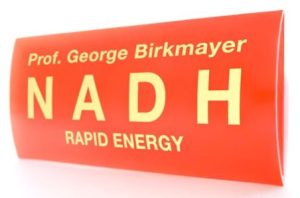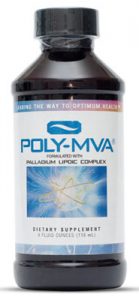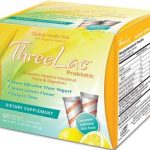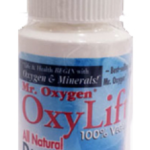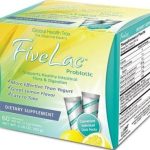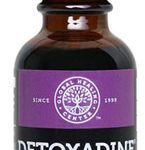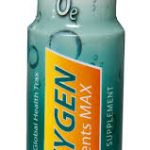The following is a copy of a newsletter I sent out to our customers in June 2016 a few days before the EU referendum on how this organisation has hugely damaged consumer choice where it comes to natural health products, basically in order to protect corporate interests.
I have uploaded this article at the request of a Facebook contact unabridged. I would write it a little differently now, but my core views have not changed a great deal in the two years that have followed, and neither have the facts.
Mark Lester – Company Director
By now, doubtless many of you are sick of hearing about the various arguments concerning immigration, the economy, preservation of democracy, and the eye wateringly high cost of membership put forth by the campaigns to stay in the EU or leave. As a health supplement company director, it’s not appropriate for me to comment on these aspects of the debate (except arguably in a personal capacity). But I feel it IS necessary for us to make you aware of how the EU has affected and will continue to affect your rights as a consumer to take health supplements of your choice, to gather information on the same, and to source genuinely natural non pharmaceuticalised products. I think it is my job to make you aware of the threat to your right to take them in worthwhile dosages, as opposed to the mickey mouse dosages that big pharma would prefer you to take, in my opinion in order to ensure your continued poor health, and consequent dependence upon them. Even though I do not generally resonate with the conventional approach to health, I also feel it is my job to also make you aware of the way in which the EU affects the treatment you will get from our beloved NHS. So if your health is important to you (which I assume is the case for everyone, since being ill or dead is not by most people’s standards fun), you need to read this.
What follows is a quick summary of some (but not all) of the EU directives that affect your right to choose, and your access to information. I could write an entire book on the subject, so please note this is only a quick summary. The UK government opposed some of the following, but where they did, they were simply outvoted by the qualified majority voting system. There is NO VETO where it comes to health issues. However although the UK government made a feeble attempt to block some of the rules, the majority of these regulations were simply passed into UK law without so much as a whimper of protest by any of the major political parties that have been in power during the last decade. In my opinion, they have let us all down horrendously by not protecting our freedoms.
- The Food Supplements Directive (2002/46/EC).
This directive requires all legally available nutrients to be on a rather arbitrary positive list in order to be allowed to be sold and consumed. As far as we could see, it seemed to depend primarily on whether that form of nutrient happened to be available in Germany at the time. In 2009 it was estimated that around 300 nutrients were banned by this irksome directive, though the real figure would be much higher given the fact that it completely blocked new forms of vitamins and minerals from coming onto the market. Examples include many perfectly safe and effective forms of magnesium, selenium and chromium. Although the situation is bad, this is set to become far worse if the Maximum Permitted Dosage levels for vitamins and minerals get set at useless Mickey mouse levels, which is a serious possibility at the next stage of implementation. Several organisations, including an entity called “Health Europe”, which is in reality just a bunch of lobbyists who are paid by the self-interested pharmaceutical companies, who fund this “organisation”, are lobbying for maximum levels to be set at EU RDA levels. These levels will be useless for any kind of therapeutic usage – as well as a direct assault on your freedom of choice. It has been claimed that this market was completely unregulated before this directive (and the next one I am going to talk about) came in. But this is nonsense. Vitamins, minerals and herbs were regulated by the Drugs Act 1968, and personally I don’t remember noticing too many dead bodies lying about in the streets because someone or other took a high dosage Vitamin C tablet prior to 2009. Yes, it was light touch regulation, reflecting how safe most vitamins, minerals, herbs and other natural products usually were – but it was never unregulated. This is a total myth.
- The Traditional Herbal Medicinal Products Directive (2004/24/EC)
In essence this was a spiteful and vindictive directive designed to protect the vested interests that successfully campaigned for it, which has created a huge black market where none previously existed. This directive has led to a tripling of the cost of many herbs, and their pharmaceuticalisation. Many have been banned outright. Many more have been chemicalised and pharmaceuticalised until they bare almost no resemblance to the 2000 year old traditions of herbal medicines, and contain all sorts of artificial chemicals which are at best questionable, and in some cases dangerous. We tried very hard to object to this horrible directive, but without success. You can read more about it here including the latest news. Before this directive came in, clearly dangerous herbs were banned under the Drugs Act 1968 along with psychoactive drugs like marijuana. Although even there, I do not agree with all the herbs that were banned from sale, on the whole consumers were relatively free to buy what they wanted, and sellers relatively free to provide products. But with the new directive, the EU was determined to stop you from actually making decisions for yourself, about your body.
- The EU Labeling Directives (2003 and updated in 2014)
This if strictly enforced could make more or less all non EU imports illegal to sell, for reasons as petty as the font size on the label not complying the required size, the ingredients not being listed in the required order, or wording such as “expiry date” instead of “best before” on the label. Can the rules really get any more petty and frivolous than this? Presumably this rule is there because they think you are too thick to know what the words “expiry date” rather than “best before” mean. Mercifully, the UK authorities don’t seen to be enforcing this with an iron fist, and have avoided harassing companies over trivial nonsense so far, but who knows what’s around the corner? Certainly these regulations enable the powers that be to put companies out of business overnight – through the harsh enforcement of EU directives. And regardless of who it is claimed to help, who benefits from this in reality? The consumer? Or big pharma? I could easily write a shed load more on this directive, but I won’t.
- The Nutrition and Health Claims Regulation (No 1924/2006)
This is the nastiest and cruelest of the lot. This is the directive which has made it illegal to say anything meaningful about virtually everything – leading to the total ban on the claims that water hydrates the body, or that prunes help with constipation – and tens of thousands of pounds of taxpayers money spent on arriving at these preposterous conclusions. With some of the products we provide, this has led to an up to 90% drop in sales.This is the directive which caused products such as Optibac Probiotics For Bowel Calm (a nice and clear product name) to have to be renamed “Saccromyces Boulardii” (which is completely meaningless or ordinary people). Similarly Optibac Probiotics For A Flat Stomach to had to be renamed “One week flat”. That’s because even the name of the product was deemed an illegal health claim. If you are finding it hard to find useful information on the supplements you are interested in, or which supplements might help you, or why you end up with no choice but to view third party, non EU based web sites to obtain information, blame this directive. Blame the EU. The idea, perhaps noble of protecting the consumer, has ended with a Draconian directive which makes publishing legitimate opinion into a crime, and bans companies even telling you what scientific research has found – unless the European Food Standards agency gives you permission to do so, and of course only after they have spent up to a million Euros submitting a single health claim. This is impossible for small to medium sized companies like the Finchley Clinic – the businesses all the mainstream political parties agree are the life-blood of the economy, yet where it comes to protecting them from petty EU regulations when they are in power, at best do nothing, and at worse encourage it! Result: the industry is becoming more and more disincentivised to even try to provide worthwhile, helpful information. So when you find that the information available on a nutrient is that it “contributes to normal energy-yielding metabolism”, instead of something that is actually useful for you to know i.e… what it may help with…it’s not the industry who are to blame – it’s the unelected EU commissioners, on their rather comfortable over £300,000 per year (plus expenses) salaries.
- The Human Medicinal Products Directive (Directive 2001/83/EC).
This directive can make any food, food supplement or cosmetic a drug at a regulator’s discretion – anything which has “a physiological effect”, or is claimed to have. This of course makes anything, theoretically even water into a medicine! After all, if you tried to avoid water for more than two or three days, you’d soon learn whether or not it has a physiological effect, even if as according to the EU geniuses, it does not hydrate the body!
Words would be inadequate to describe how heartbreaking it is for us to be banned from providing many safe, effective natural health products and to tell you what they actually do even when we can sell them. And even more heart breaking for your health to be compromised as a result. Even more so in view of the estimated 40,000 deaths per year conservatively estimated by University College, London to occur in the UK as a result of CORRECTLY prescribed medical drugs (the numbers are even higher when the death rate for badly prescribed drugs is added to this).
(Source: Daily Telegraph December 19 1999. Similar article Daily Telegraph 30 Nov 2008, numerous newspaper and medical journal articles have come out since these older citations, all saying the same thing. However I haven’t bothered to save them all, because they all say the same thing, so it just gets repetitive after a while).
Now it gets worse: TTIP, Big Pharma, and the EU
The transatlantic Trade and Investment Partnership. is something almost nobody – even in the health industry has heard of (yet) – and most people will only do so when it is too late. Interestingly, the highly unlikely combination of Friends of the Earth and the UK Independence Party are strongly opposing this deal although the three mainstream parties support it – or at the very least have not opposed it in any way. TTIP is supposed to be a free trade agreement between the European Union (EU) and the United States (USA), which all sounds rather nice in theory. But the reality is less nice.
Regarding the first point, as stated on one web site “The analysis of the 5 most worrying proposals of the pharmaceutical industry’s wish list for the EU-US trade agreement reveals a real threat to European public health systems and democracy. A report by the Commons Network and civil society partners shows that the pharmaceutical industry’s wish list for the TTIP is detrimental for public health, will increase the cost of medicines and undermines democratic processes”.
According to Professor Angus Dalgelish – an oncologist in a leading London teaching hospital “20 years ahead the NHS will not be viable in any shape or form unless we address these (EU directives) issues….The current NHS structure cannot cope….All improvements to improve patient care are thwarted by regulatory burdens. They want us to improve everything at the coalface and then shackle us and straightjacket us with this.
The main problem is the blind acceptance of European Union Directives without thinking through the consequences – the law of unintended consequences.
The EU Clinical Trials Directive
In the words of Professor Dalgleish this “was meant to be brought in to harmonise research, but it has ended up destroying academic medicine in this country – a field in which we were world leaders. This has resulted in several reports from the professional bodies [opposing this directive]. One of them, from the Academy of Medical Sciences (of which I am a fellow), have done a lovely document to the government pointing out the problems, leaving no stone unturned and we still haven’t had any kind of response to it. Before this came in I could do all sorts of trials with simple cheap drugs vaccines etc that might improve outcomes and we could do it in academic centres. It was easy getting this done. When the EU Clinical Trials Directive was pointed out to me, I said to the government, the MHRA, the Presidents of the College of Physicisans and pathologists etc that this could be a disaster. They patted me on my head, virtually, and said “don’t worry, it won’t happen, it’s just sort of a tidying up exercise”. Then what happened when it came in? I get told I can’t do this, I can’t do that. I went to see these guys and tell them you agreed, you promised, but they’ve all gone. They’ve all retired. They’ve brought in new people who say “well, these are the rules”. So that’s what happens.
So do do a trial now, and this is no word of exaggeration, because I just tried to cost one up, it’s coming in at £2m to do a study, that previously cost about £50,000! How can you possibly justify that if you’re not a big pharmaceutical company? The label on the tin was to harmonise clinical research and protect the patient. But in reality it increasingly looks like a cartel to protect big pharma and to keep competition from generics and academics out. The result is that much clinical research previously being done in this country is now being done elsewhere, and the patients lose out. This was the thing that really got to me.
I had to go to All Party Parliamentary Committee on Cancer care, and I said It’s absolutely pointless addressing any of these things [which he had gone to talk about] unless you get rid of The EU Clinical Trials Directive, because it’s the patients who are losing out from this. We used to have a world-class lead on this, but now unless it’s the drugs companies behind it, we can’t do anything.”
EU Working Time Directive and the NHS
More from Professor Dalgliesh : – “If you think that’s bad enough, there are other European Directives that are just destroying the NHS. Until we get rid of them, we just cannot get the NHS the way we want it. Take the Working Time Directive. It limits the amount of hours that people are allowed to work in a week, and that’s it. But it’s impossible to do that with a health care system. But our government have said “this is how it is”. But to do this, you need to plan for about 20 years, and employ three times the number of doctors overnight, and this we cannot do. Because of this directive, people aren’t being trained. I don’t know any surgeon now who would want to be operated on by one of their young colleagues. Someone phoned me when they heard I was giving this speech, and said “It’s even worse than you think. We’ve just appointed a consultant colo-rectal surgeon who has only done four colectomy (removal of the colon) operations in his life”. We did this before we (even) became registrars when I was training! It has inflicted utter chaos on the health care system, and nobody is doing anything about it.”
The EU freedom of movement directive, and your health.
And once again, Professor Dalgliesh: – “The freedom to move from one country to another is a great ideal. But if you’ve got a set amount of doctors, nurses etc how can you then deliver the service for a demand which goes up exponentially? The freedom to move is a great idea in theory. But in reality when one country provides everything free at the point of service, including treatments which are unavailable altogether in about a third of EU countries, how can you blame people from coming here from abroad to get treatment?. Of course people from outside will want to access this if they’re desperate. Merion Thomas, an NHS surgeon recently wrote about the flagrant abuse of the NHS by those who are not entitled to it and the massive savings that would be made if this was stopped. The obvious solution is that the NHS should only be free at the point of service to those that have paid into it. Others would have to take out insurance”.
A solution?
There is an alternative to having to comply with EU regulations which pose a threat to your health, your freedom of choice, and access to health information. The alternative is to leave the EU, and be done with it. In the good old days, was there anything that bad about having our laws made by people who we actually elected, and can throw out if they do a lousy job? Call me old fashioned, but I rather like our laws to be made by democratically elected British politicians rather than unelected bureaucrats, who for all we know, have never even stepped on British soil, and have no reason to be especially concerned with what is best for the UK.
I personally believe that the EU is an insult to the democratic values it took hundreds of years for the UK to arrive at. But leaving that aside, I urge customers to vote to leave the EU if their health is important to them. The EU has already done enormous damage to the health and well-being of our customers, and this is set to get much, much worse with our continued membership of this organisation. I know of more than one health supplement company who have been put out of business by the EU (whereupon the customers oftentimes buy the same products, at greater expense from outside the EU or poorer nearest alternatives). On the current trajectory, like the decimated UK fishing industry, more are likely to follow in the future. And that potentially includes us, and the unique range of products we provide. This is why regardless of of your overall political views, we encourage you to vote to leave the EU on June 23rd, and take back control of the most fundamental things in your possession: your body and your health.
For those anyone who is interested to know more about the way in which EU regulations actually affect every aspect of our lives, whether or not we are aware of it on a day to day basis, and how our democractic rights are being eroded, I urge you to give an hour of your time to view the superbly produced Brexit available to watch free on YouTube. If time permits, I also recommend the somewhat disturbing Brexit: Facts Not Fear.
Mark G. Lester – Director, The Finchley Clinic Ltd
www.thefinchleyclinic.com


